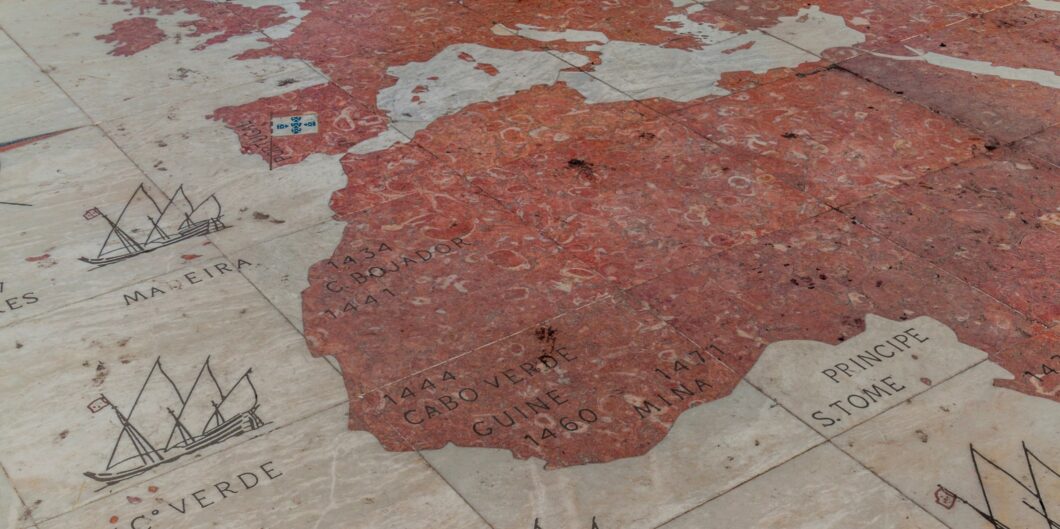The Economics of Black and White
Some years ago—when he was still living in Poland—political science academic Remi Adekoya attempted to play the now common game of Oppression Olympics with some Polish colleagues.
It did not go well.
When I’d bring up history, Poles would acknowledge Africa had been ruthlessly exploited but then go on to recall their own history. Losing their independence for 123 years from 1795 to 1918, then being invaded by Hitler in 1939 and having their capital reduced to rubble, then being abandoned by the West to half a century of Soviet communist domination which left them poorer and weaker than other European nations. ‘Most of the last two hundred years were pretty crap for us too,’ they’d conclude. In other words: Get over your past, you’re not the only victims of history.
This episode not only reveals that there are some countries and peoples against whom it is unwise for anyone else to play the Oppression Olympics (Jews and Ukrainians, if anything, would be even harder to beat than Poles). It also reveals quite a bit about Remi Adekoya, who has written a book as striking as his own background. Half Polish and half Nigerian, Adekoya has lived and worked as a journalist in both countries, speaks more languages than anyone has a right to, and now plies his trade as a political scientist at the University of York.
At once witty and fact-filled—but also self-deprecating and sometimes very moving—It’s Not About Whiteness, It’s About Wealth: How the Economics of Race Really Work turns current debates about racism and privilege on their heads (or perhaps their sides).
His basic thesis is simplicity itself: Black people and white progressives can bang on about how morally superior they are as victims—while doing things like pretend Cleopatra was black—until the cows come home, but this amounts to little more than trying to fart the current top ten through the keyhole. One can admire the enormous effort involved, but one is also forced to acknowledge that there will be little in the way of reward. It doesn’t change black people’s status one whit, either in their own eyes or in anyone else’s.
This is because Africa (where 90 per cent of the world’s black people live) is dirt poor compared to the rest of the planet. As long as that reality obtains, no amount of Boris Johnson-style “boosterism” is going to change a global racial hierarchy based on wealth. Adekoya wants readers to shift the variable they think about when they’re assessing racial attitudes. This monetary hierarchy sees majority white—and, increasingly, majority East Asian—nations at the top of the status pile, with the rest of the planet descending from the summit, stair-step, beneath them. The vast and populous continent of Africa remains at the bottom—as it has for much of recorded history.
I’m not alone in my familiarity with World Bank data showing absolute poverty—the share of the world’s population living on less than two dollars a day—has dropped like a stone since the end of the Cold War. We’ve all seen the figures and patted ourselves on the back: three cheers for free trade.
What Adekoya brings out is how the problem of relative poverty within countries—where no one is starving but people compare themselves unfavourably with their neighbours and friends—has now become a global phenomenon. People in Nigeria living on USD$150 a month can see Europeans, Americans, Japanese, and Chinese thanks to the ubiquity of the internet, and more importantly can see how they (we) live.
Relative poverty and the fact that “famine in Africa” is now less of a trope also cannot obscure other economic realities. In a data-rich explanation of the extent to which access to money determines esteem both at the sub-national and supra-national level, Adekoya’s discussion of just how few Africans have any financial purchase on their individual destinies is particularly telling:
The World Bank defines the global ‘middle class’ as those earning at least $12,535 a year, which comes out to just over 1K a month. This may seem a modest income to Westerners—which just shows how much richer than others they are—but sounds about right in a global context. As of today, eight in ten Europeans and nine in ten North Americans reach this global middle-class income threshold. In China, it is one in four. In Latin America it’s one in six and in the Middle East it’s one in nine. In South Asia and Africa, where most of the world’s black and brown populations are concentrated, just one in fifty people—2 per cent of the population—have monthly incomes exceeding 1K. Britain has a larger number of people qualifying as global middle-class than the whole of Africa or South Asia.
At this point, a lot of people are no doubt wondering how Adekoya proves his global wealth=global status claim. He does so by producing study after study showing that—even in majority black countries—black children under five prefer pictures of whites to pictures of blacks, just as white people do in white majority countries. Nevertheless, for those of us familiar with the famous Kenneth and Mamie Clark dolls tendered in evidence during Brown v. Board of Education, Adekoya’s findings may come as a shock. Black children in majority black African nations ruled over by other (wealthy, high-status) black people prefer white dolls to black ones because whiteness is seen as a proxy for wealth.
Meanwhile, blacks (in Africa) and whites (elsewhere) alike rate black people as less competent, basing their assessment in large part on poverty and poor governance in African nations. Even worse, when a black person—typically a sportsman or entertainer—becomes individually successful, people of all races often admire him because he’s American or, occasionally, British. People in nations like Nigeria or Zambia are not fools. They’re aware of the extent to which the UK and US are meritocracies, while their own countries are corrupt and economically mismanaged. It is also well to be reminded that only three percent of the world’s black people live in the UK and US.
It’s when discussing these issues that Adekoya’s years working as a journalist in Poland and Nigeria really shine. Not only is he in possession of a great deal of “on the ground” information about both places, but he’s also able to prove—relentlessly, piling study on statistic on anecdote—his core claim that “a race debate not embedded in detailed material realities is intellectual masturbation.”
Perhaps because of his Nigerian background, he is especially acute on the extent to which Africa’s most populous nation evinces a shocking waste of not only vast natural resources but also the talent and aspirations of its people. Of course, Nigerians then immigrate to Western countries and make excellent fists of their lives. Anyone who reads Adekoya’s book will find this unsurprising. Nigeria itself, however, is something of a mess:
During my time in Poland, I can’t recall how many times I and other Nigerians in the country shook our heads bitterly at news that once again our embassy had been forced to relocate because it owed back-rent. Corruption was certainly a problem as significant chunks of the funds that were sent from Nigeria often ended up in the pockets of those at the top of the embassy food chain. But the funds were nearly always late in coming and what was allocated was an objectively small budget for an embassy representing the largest black nation on earth.
Relatedly, parlaying black poverty and historical disadvantage for moral victim points only goes so far. Adekoya makes a compelling case that it only gets traction in European states that once had colonial empires of their own, while European countries with the most scarifying colonial histories of all—his own Poland, or places like Romania, Hungary, and Ukraine—just aren’t going to buy it.
Even in former imperial powers like the UK and France, Adekoya argues that victimhood as a status play only works in certain workplaces and milieux—he nominates universities and parts of the civil service. In a thoughtful interview with UK magazine Spiked shortly after It’s Not About Whiteness, It’s About Wealth came out, Adekoya warned that ethnic minorities—not just blacks—were building up resentment among white majorities. He’s not alone in worrying this is going to have electoral consequences in the future.
“Africa needs to get richer if black people are to get more respect” has a pleasing simplicity to it, but achieving that outcome is in the realm of geopolitics—always the toughest nut to crack. Adekoya’s main practical suggestion is for Western powers to stop shafting much poorer and weaker African nations during trade negotiations (looking at you, European Union, probably the worst offender). He is also aware that persuading countries like China on this point will be harder, given their own historic sense of superiority and experience with colonialism.
I’m old enough to remember 1985’s Live Aid—spot the true GenX-er—and it’s important to recall the world has moved on from the “famine in Africa” trope. This is a good thing. It should be celebrated. But it isn’t the only thing. Remi Adekoya’s It’s Not About Whiteness, It’s About Wealth is a timely reminder that global economic inequalities are still hugely significant, especially when it comes to how we allocate status and respect.


